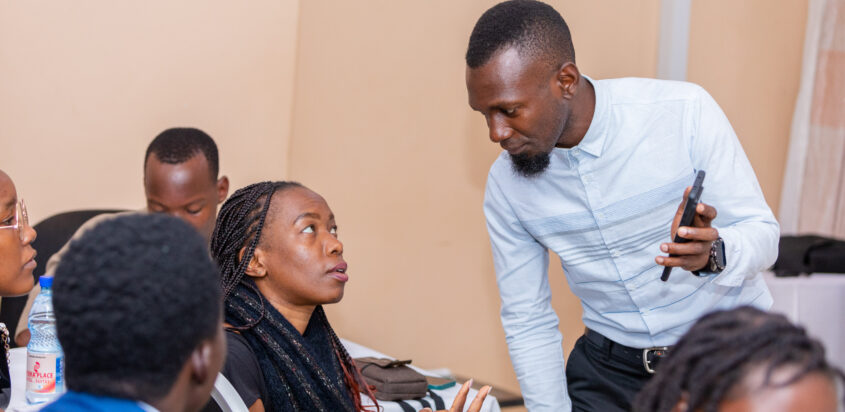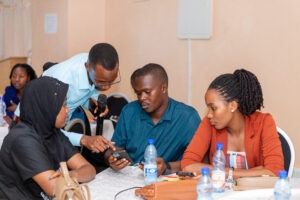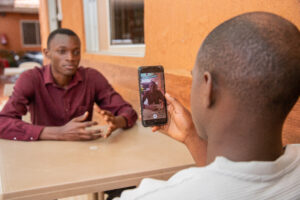
In the digital age, elections in Africa have become a double-edged sword. The internet offers young people a platform to amplify their voices and engage in democratic processes. Still, it also introduces challenges such as misinformation, disinformation, and mal-information, a remedy for violence during the electoral processes.
Uganda’s recent electoral history underscores the critical role of digital literacy in fostering peaceful and informed participation. Since 2016, the rise of social media as a key tool for political communication has reshaped electoral landscapes across the country, where digital platforms are used for campaigns and mobilization efforts.
Uganda’s youth, who make up the highest percentage of the population, are at the heart of the country’s democratic processes. As digital natives, they wield significant influence through social media, shaping opinions and rallying communities. However, this influence can be a double-edged sword if not handled responsibly. Past elections have shown how misinformation on social media can quickly spiral into violence, eroding trust in institutions and dividing communities. To counter this, young people need to be empowered as gatekeepers of truth, advocates for peace, and champions of civic responsibility.
The SYCP Digital Skills Training
From 18th -21st of November, we held a transformative digital skills training program for 150 youth leaders from Kampala, Mukono, Wakiso, Mbale, and Mbarara, many of whom aspire to leadership positions, and are also preparing to cast their votes in the upcoming 2025/26 general elections.

The training aimed to tackle the threats posed by misinformation, disinformation, and malinformation, and to empower participants to become bearers of factual, responsible, and peace-oriented content. Beyond combating digital misinformation, the program provided tools for youth leaders to effectively utilize social media as a platform for advocacy, leadership, and community engagement, with an emphasis on platforms like X, WhatsApp, and TikTok, which young people commonly use to consume and share information.
In addition, the youth leaders were introduced to concepts such as understanding peace and violence in elections, using social media for leadership, content creation for peacebuilding, and citizen journalism. As the use of digital platforms expands, so do the associated threats. Through CIPESA’s Digital Security Hub (Helpdesk), participants gained hands-on support and access to essential digital resilience tools such as VPNs, anti-malware software, encryption applications, and Tor. These resources were shared to help them navigate Uganda’s increasingly restrictive digital environment safely and confidently.
More than a response to the digital challenges of our time, the training was a proactive step toward building a peaceful, informed, and engaged electorate. Youth leaders, as influencers in their communities, hold the power to shape the narrative of the 2025/26 elections. By equipping them with digital skills, we are fostering a ripple effect these leaders will inspire their peers, educate their communities, and set an example of responsible digital citizenship.

As we inch closer to this electoral cycle, initiatives like this training are critical. They address the root causes of digital misinformation and equip young leaders to rise above the challenges, ensuring that the internet becomes a tool for democracy rather than division. Under the strengthening youth civic participation project, we believe Uganda’s youth are not just participants in the electoral process they are the architects of its future. With the right tools, they can lead the charge for peaceful, credible, and inclusive elections, setting a standard for the rest of the country. Through this training, we have taken a significant step toward that vision. As these 150 youth leaders return to their communities, they carry with them the skills and knowledge to transform the digital landscape, promote peace, and inspire a new generation of informed voters and responsible leaders.
Insight
Digital skills training is one of the initiatives under the Strengthening Youth Civic Participation a three-year project that seeks to strengthen and re-awaken young people’s belief in violence-free elections and offer them meaningful opportunities at the community and national level to generate genuine feedback around pro-youth policy commitments aligned with their aspirations